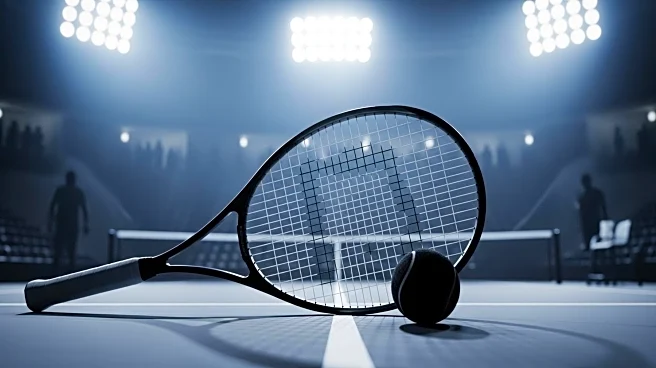What is the story about?
What's Happening?
Alexander Zverev, the third seed, defeated Jacob Fearnley in the second round of the US Open with a score of 6-4, 6-4, 6-4. The match, held at Louis Armstrong Stadium, was marked by Zverev's strategic delay, keeping Fearnley waiting for over 10 minutes before the match began. Despite Fearnley's efforts to dominate the baseline and disrupt Zverev's rhythm, the latter's consistency and strong serving proved decisive. Fearnley, in his first US Open main draw appearance, acknowledged the challenge posed by Zverev's solid play and the psychological tactics employed by top players.
Why It's Important?
The match highlights the psychological strategies employed by top tennis players, which can impact the performance of less experienced opponents. Fearnley's experience underscores the importance of mental resilience in professional sports, particularly in high-stakes tournaments like the US Open. The encounter also serves as a learning opportunity for Fearnley, who is still early in his professional career, emphasizing the need to adapt to the mental and physical demands of top-tier competition.
What's Next?
Fearnley will continue to develop his skills and address his shortcomings, such as reducing double faults, as he gains more experience on the professional circuit. His next steps involve refining his game strategy and mental preparation to better handle the pressures of playing against top-ranked opponents. Meanwhile, Zverev advances to the third round, where he will face new challengers as he aims to progress further in the tournament.
Beyond the Headlines
The match sheds light on the gamesmanship prevalent in professional tennis, where psychological tactics can be as crucial as physical prowess. This aspect of the sport raises questions about the ethical boundaries of such strategies and their impact on sportsmanship. As Fearnley navigates his career, understanding and countering these tactics will be vital for his growth as a player.
















